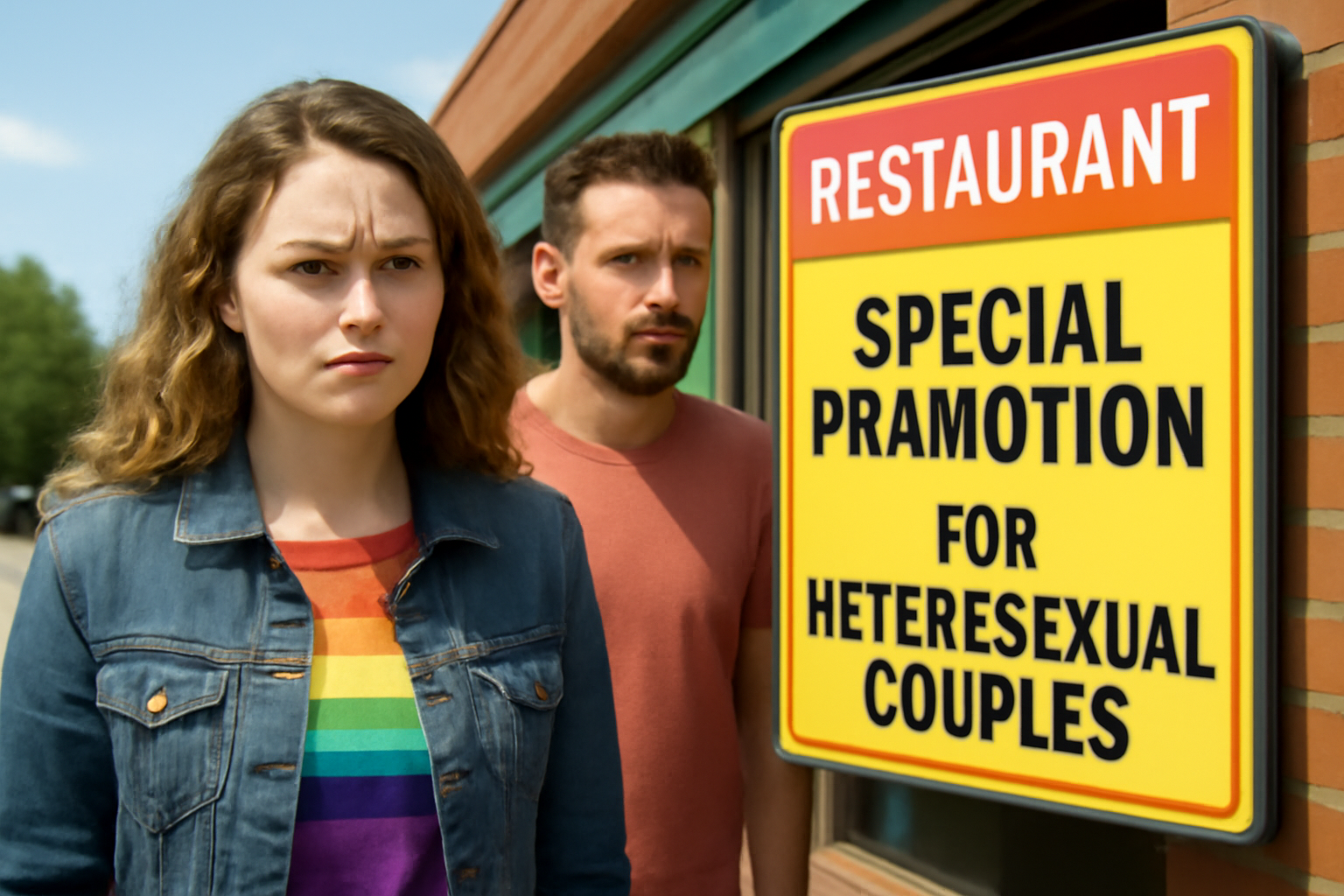
Introduction
In a recent controversy that has sparked widespread discussion, a restaurant in Mississippi has come under fire for a policy that many have deemed discriminatory. The eatery, a popular spot for locals, decided to offer a special promotion exclusively for heterosexual couples, leading to a significant backlash from the LGBTQ+ community and allies.
The Controversial Offer
The restaurant, known for its Southern cuisine, announced a new promotional deal that was intended to attract more customers. However, the specifics of the offer quickly drew criticism. The deal, which advertised a discount for couples, was explicitly limited to those who could prove they were in a heterosexual relationship. Patrons were reportedly required to show evidence, such as a marriage certificate or other forms of identification, to qualify for the discount.
This policy not only excluded same-sex couples but also raised concerns about privacy and discrimination. Many potential customers expressed their frustration on social media, highlighting how such a policy sends a harmful message and alienates a significant portion of the community.
Community Reaction
The response from the community was swift and vocal. Social media platforms were flooded with messages of support for the LGBTQ+ community, and calls for a boycott of the restaurant were circulated widely. Local advocacy groups quickly organized protests and called for the restaurant to revise its policy and apologize.
One protestor at a demonstration outside the establishment stated, "This kind of exclusionary policy only serves to divide our community further. Restaurants should be spaces where everyone feels welcome, regardless of who they love."
The uproar gained national attention, with several prominent figures and organizations expressing their disapproval and solidarity with those affected. The incident has sparked an important conversation about the role of businesses in fostering inclusivity and the impact of discriminatory practices.
Restaurant's Response
In the face of mounting pressure, the restaurant's management issued a statement attempting to clarify their intentions. They claimed that the promotion was meant to celebrate traditional relationships and was not intended to offend or exclude anyone. However, this explanation did little to quell the outrage, as many pointed out that celebrating one group at the expense of another is inherently exclusionary.
After several days of protests and negative publicity, the restaurant eventually decided to retract the promotion. In a follow-up statement, the management apologized for the oversight and promised to implement more inclusive policies moving forward. They also expressed their commitment to learning from the incident and engaging with local LGBTQ+ groups to better understand how to serve all members of the community.
Lessons Learned
This incident serves as a stark reminder of the importance of inclusivity in business practices. In a diverse society, businesses must be mindful of how their actions and policies impact different communities. Discriminatory offers and practices not only harm those who are excluded but also damage the reputation and trust of the business within the wider community.
For those who identify as LGBTQ+, such experiences can be painful reminders of ongoing struggles for equality and acceptance. However, the outpouring of support and swift community action in response to this incident also highlights the resilience and solidarity that exists within and among allies of the LGBTQ+ community.
Moving forward, it is crucial for businesses to engage in open dialogue with diverse groups to ensure that their policies reflect a commitment to inclusivity and respect for all. Such efforts not only foster a more welcoming environment but also contribute to a more harmonious and equitable society.
Conclusion
While the controversy surrounding the Mississippi restaurant's policy was unfortunate, it has sparked important discussions about inclusivity and the responsibilities businesses have to their communities. By learning from these incidents and committing to positive change, there is hope that all public spaces can become welcoming environments for everyone, regardless of their sexual orientation or identity.
Related Posts
Triumphant Trans Woman Wins Legal Battle and Inspires Others to Stand Up for Their Rights
Breaking New Ground: A Triumph for Trans Rights A transgender woman’s decade-long legal fight against workplace discrimination has culminated in a significant victory. After enduring years of humiliation and disrespect from her employer, Diana Portillo was awarded nearly $1 million in a landmark settlement. Her story is not just about personal vindication but also about her commitment to paving [...]
Pride Month in Latin America: Protests and Demands for Equality
**Celebrating Pride and advocating LGBTQ+ rights in Latin America** Pride Month in Latin America was a lively mix where celebration met activism. Communities united, not just throwing a party but making a stand—demanding equality and pushing governments toward better protection and rights recognition. Throughout Latin America, pride events erupted in marches and cultural displays, each with a c [...]
Transgender Erasure Actions Implemented by National Park Service
```html Trump administration's impact on national park service and transgender recognition The Trump administration made notable moves in undermining transgender representation, which included directing agencies like National Park Service not include "T" and "Q" when they refered “LGBTQ” in any official communication. This move seems part a broader plan by this administration aimed at reducin [...]